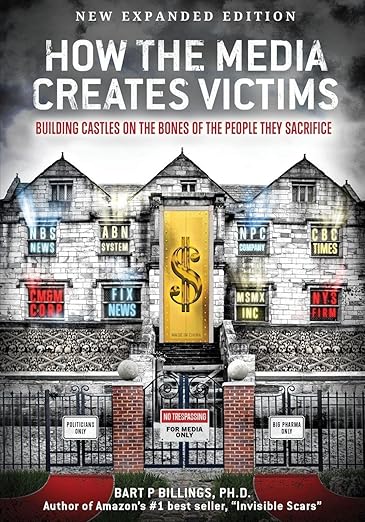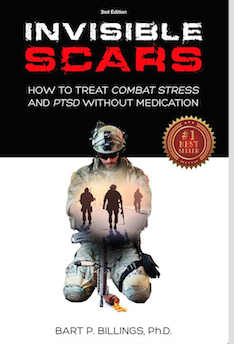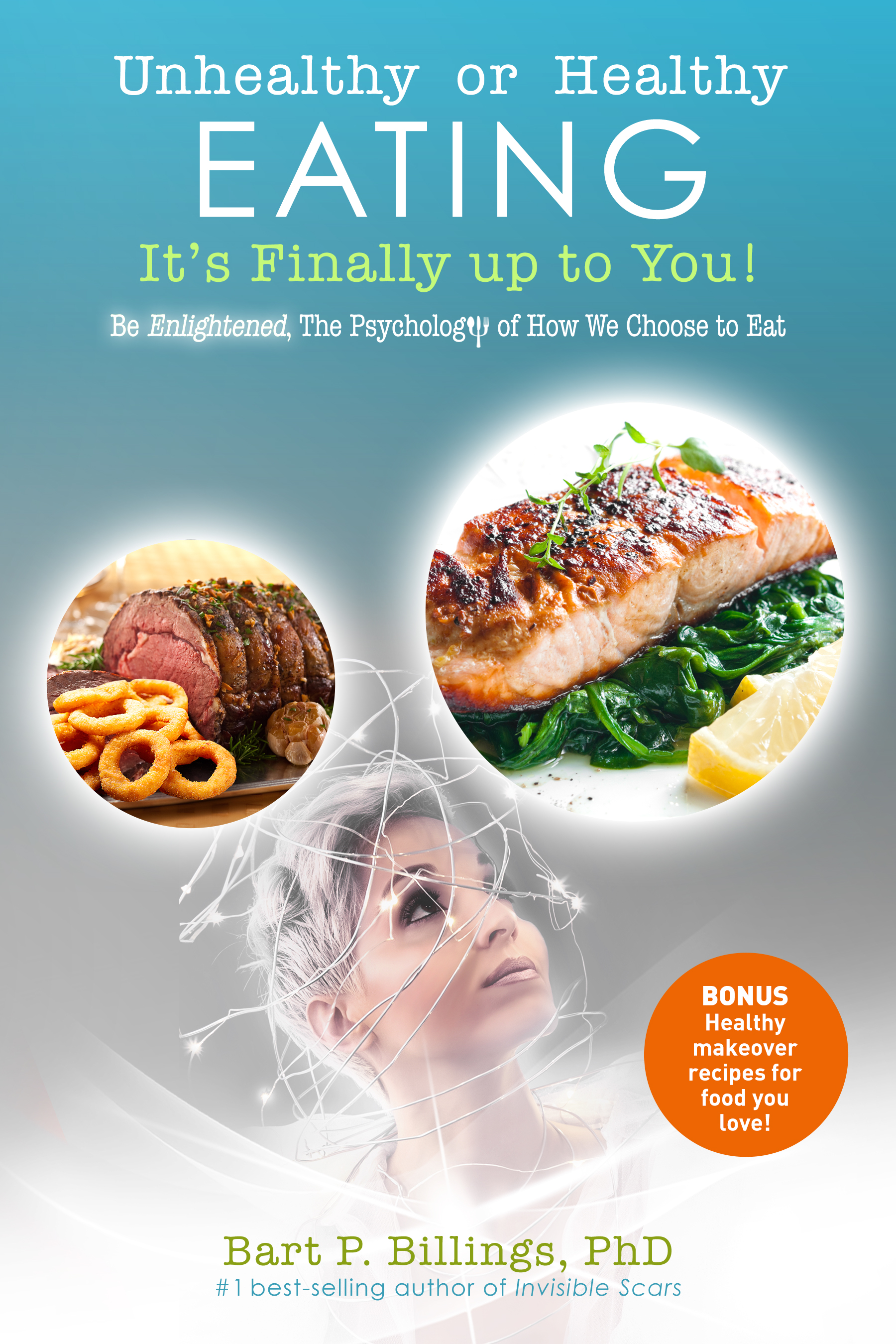Ask The Psychologist Issue #27: Warning: DENIAL can be Hazardous To Your Mental and Physical Health
- Posted by Bart Billings
- Posted on July 26, 2021
- Ask the Psychologist
- Comments Off on Ask The Psychologist Issue #27: Warning: DENIAL can be Hazardous To Your Mental and Physical Health
Recently I read an article in PSYCHALIVE that is very relevant to what is occurring in the world today. Whether you are dealing with political or medical situations, DENIAL may come into play and prevent, even the brightest people from seeing things clearly. Denial is a defense mechanism used to dull psychological pain, that is caused when our Basic and/or Higher Level Psychological Needs are being threatened.
If you view CHOICE THEORY PSYCHOLOGY as a model, you will see that all human beings have Basic Physical Needs and Higher Level Psychological Needs. Basic Needs are physical survival from illness and the attainment of food, clothing and shelter. Higher Level Needs consist of 1. Involvement/belonging, 2. Power/selfworth, 3. Fun/learning new information and 4. Freedom to live your life as you desire.
You can determine for yourself if any of your above mentioned needs are being effected by what is happening in our country today; which may result in you using denial to dull your psychological pain when needs are not being met. But based on what is occurring in the world and in our own country, there will be some people choosing denial to keep an even balance in their life. But the danger in using denial may go beyond simply not being open minded, but may cause people to move away from friends and relatives that don’t share their perceptions and only affiliate with people who do. This appears to be what our society is now calling counter culture.
To deny another persons perceptions and indicate they are wrong and you are right, will most often lead to more than a simple disagreement, This is what leads to arguments, the denial of allowing a person the freedom to perceive. Give me liberty or give me death in a sense, is what occurs when you try to deprive a person of an inherent human need such as freedom to think and perceive. This is why one of the most important things I have thought my patients, interns, etc., is that no two people can view the same thing 100% the same way. Since all humans have distinct brains (like their fingerprints) and different life experiences, every conversation, in fact, becomes a disagreement to various degrees. With this in mind, we must be able to state, you are right for you and I am right for me, how can we compromise and negotiate so we can meet somewhere near the center or better. But when one states, I am right and you are wrong, the resulting denial of the others human psychological need becomes an argument, that can lead to destructive relationships.
The following article written by a Clinical Psychologist is worth reading since it gets into more specific information on DENIAL.
Denial: The Danger in Rejecting Reality
DEFENSES, SELF DEVELOPMENTBy Dr. Barbara Ford Shabazz“Denial was a weapon; it killed truth, numbed the mind, and I was a junkie.”
– John Hart
If you read the title and thought, “Oh, I don’t struggle with that,” then this post might be for you. In fact, one of Western society’s biggest problems is rooted in the defense mechanism theorized by psychoanalyst Sigmund Freud, way back in the 19th century. Freud postulated that denial is unconsciously choosing to push back on factual truths because to admit them would be too psychologically uncomfortable and require facing the unbearable.
We’ve all engaged in denial of some form as a way of protecting ourselves. In fact, short-term denial can be helpful in navigating extremely stressful situations that have the potential to be physiologically shocking and render us stuck. It’s when we allow this response to exist long-term, choosing not to take action based on truth, that it can become an unhealthy adaptive pattern.
When a person actively rejects facts and possible outcomes, despite overwhelming evidence, they are deciding to:
-
Turn a blind eye:
“I’m in my bubble, and nothing like that happens here.” This is the “out of sight, out of mind” response. It’s unpleasant, so one compartmentalizes, shelves, and pushes to the side. It’s simply not happening, because they’re not acknowledging it as so.
-
Minimize:
“This is an isolated incident…not necessarily a huge deal…or prevalent enough to be concerned with.” Minimization occurs when one is a bit more conscious but tends to downplay impact. It IS a problem, but they psychologically diminish its severity.
-
Shift responsibility:
“Yes, it’s an issue, but I can’t do anything about it…Things will work out.” This type of denial finds a person admitting something exists but refusing their role in and accountability with resolving it. They acknowledge the seriousness and the reality but refuse the blame.
The problem with these choices is that the issues don’t change and often grow exponentially. What we don’t repair, we usually repeat. And while it may seem easier to continue existing in this loop of avoidance, it will often leave our lives more chaotic, void of the help we need, and full of genuine angst. Long-term abuse of this defense mechanism is also specifically linked to addiction, low self-esteem, personality disorders, relationship issues, codependency, depression, and anxiety.
Denial is the cornerstone of an alternative reality and is reinforced by the building blocks of motivated reasoning, rationalization, cognitive dissonance, groupthink and confirmation bias. As the Chinese proverb says, “Two-thirds of what we see is behind our eyes.” So, it is with confirmation bias that we only seek information to validate what we already believe. Motivated reasoning is a gut-level liking or disliking that determines how we interpret evidence and reality. Our desire to avoid negative emotions can motivate us to justify things the way they are and resist change to the status quo. Rationalization and groupthink convince us to make poor decisions, individually and collectively, as a result of our refusal to consider dissenting viewpoints. Contemplation diminishes confirmation. So, the quicker one chooses the route of cognitive dissonance, defending our actions to ourselves, the faster we reduce the tension that comes from having to process inconsistent thoughts or beliefs.
“It is better to live with your eyes open and acknowledge what you can’t control – while directing your attention to what you can – than it is to pretend that things you don’t wish to see don’t exist.” – Zero Dean
None of us want to willingly face emotional pain and anxiety head on, so it makes logical sense that denial be our default intention. It’s a means of survival. However, if we want to learn better ways of coping and dealing with uncomfortable feelings, issues, and situations in our lives, we would benefit by integrating the following scripts in our efforts to move past denial:
-
Acceptance:
“There is new information that certainly exists that is in direct opposition to what I believed or wanted to believe differently. I may not like it, but I have to decide what part of it I need to receive. Without being amenable to this information, I am choosing to do further harm to myself and others.”
-
Accommodation:
“I have to make room for this new information in my life, consider it, and understand how it fits into my existing framework, worldview, and belief system.”
-
Adjustment:
“I have to figure out the necessary changes or adaptations in my attitude and behavior that are needed to function with new normalcy. Also important at this stage is asking who can be key in supporting my evolution.”
At any time, we can all be willing participants in our complex culture of denial. Lee McIntyre writes, “Post-truth represents a cultural shift. It is an alarm call that the truth is in danger, not a pronouncement that the battle for truth is over. In this, one should accept the fact that truth is threatened not just by those who deny it, but also by those who refuse to take truth denial seriously, and so abet the deniers by claiming there is little to worry about so long as some of us are fighting back.”
Be mindful not to allow this protective pattern of your ego to morph into potentially disastrous long-term outcomes. You have the choice to wield this defense mechanism in a way that is more helpful than harmful.
Bart P. Billings,Ph.D.
COL SCNG-SC, Military Medical Directorate (Ret.)
Licensed Clinical Psychologist CA PSY 7656
Licensed Marriage, Family Therapist CA LMFT 4888
—Director/Founder International Military & Civilian Combat Stress Conference
—Initial Enlisted Ranks and Retired as Medical Service Corps Officer with a total of 34 years in US Army
—Recipient of the 2014 Human Rights Award from Citizens Commission on Human Rights International & The University Of Scranton “Frank O’Hara Award” in 2016.
bartbillings@yahoo.com
http://bartpbillings.com (“
www.combatstress.bizhosting.co
—Cell 760 500-5040
—Ph 760 438-2788
AVAILABLE NOW
“INVISIBLE SCARS” is available at Amazon.com: http://a.co/1WKPjsc

Some Amazon 5 Star Recent Customer Reviews
– This Book Saved My Life.
– I am sure that this book will save lives.
– 25 pages into Invisible Scars, I knew that it was the second most important book I would ever read…after the Bible. — David T. Ossian, Asst. National Vice Commandant , Marine Corps League
– This book is life changing…everyone needs to read ….
MOST CURRENT NEW BOOK
“HEALTHY EATING” is available at Amazon.com: http://a.co/4wlhtsa




